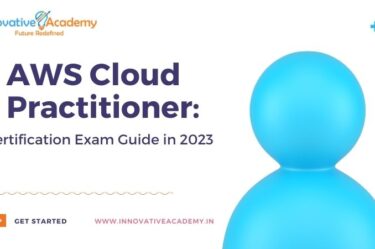Interview Questions for AWS DevOps Engineer 2024-25
Table of Content
Introduction
With the increase in demand for AWS DevOps engineers, it is important to prepare yourself well for technical and theoretical examinations. DevOps Engineers have to work with AWS services and other cloud-based applications
Ansible
- What is Ansible, and how does it work in configuration management?
Ans. Ansible is required for IT automation and configuration management. It is an open-source tool. It uses playbooks (written in YAML, or Yet Another Markup Language ) to automate tasks such as provisioning, configuration, and deployment of applications.
Agentless: Unlike other tools (e.g., Puppet), Ansible doesn’t require agents on the managed nodes.
Real-time Example: Automating the installation of web servers across multiple VMs using an Ansible playbook, which ensures uniformity and reduces manual effort. - What are Ansible playbooks, and how would you use them in a real-world scenario?
Ans. Ansible playbooks are files written in YAML that define a series of tasks to be executed on remote hosts. Playbooks are the heart of Ansible’s automation framework.
Real-time Example: A playbook can automate the installation and configuration of a LAMP (Linux, Apache, MySQL, PHP) stack on multiple servers with a single command. It saves time and ensures consistency across servers.
Jenkins
- How does Jenkins automate continuous integration (CI)?
Ans. Jenkins is a continuous integration/continuous delivery (CI/CD) tool that automates building, testing, and deploying applications. It integrates with tools like Git, Maven, Docker, etc., to enable automated pipelines.
Pipeline Example: A Jenkins pipeline can be triggered whenever a developer
pushes code to a Git repository, which automatically tests and builds the code.
If successful, Jenkins can deploy the code to a production server.
- What is a Jenkins pipeline, and how does it fit into the DevOps lifecycle?
Ans. A Jenkins pipeline is a sequence of stages (build, test, deploy) that define the steps to automatically deliver your application from code to production.
Example: A Jenkins pipeline can automatically trigger when a new commit is made to a GitHub repository. It pulls the latest code, runs unit tests, builds the application, and then deploys it to a staging environment.
Git
- How does Git work in version control, and what is the use of Git merge and Git rebase?
Ans. Git, a distributed version control system, tracks modifications in source code during software development. It allows many engineers to work together without overwriting each other’s work.
Git merge: Combines changes from one branch into another, keeping the history of both branches intact.
Git rebases: Moves or replays changes from one branch on top of another, making the history linear.
Example: After operating on a feature branch, an engineer can rebase the branch to keep a task history clean or merge it with the chief/main branch to inculcate the new feature.
- How does branching work in Git, and why is it important for DevOps practices?
Ans. Branching in Git allows developers to create independent lines of development. Each branch can have its own changes without affecting the main codebase.
Real-time Example: In a feature branch workflow, developers create branches for new features or bug fixes, ensuring that the main branch remains stable. The branch is merged back into the chief branch after examining the feature.
Kubernetes
7. What do you mean by Kubernetes? How does it manage containerized applications?
Ans. Kubernetes (K8s) is a container orchestration tool that automates the deployment, scaling, and management of containerized applications. It abstracts the underlying infrastructure and simplifies container management.
Key Concepts:
Pods: It is a deployable unit in Kubernetes which is the smallest. It can have more than one container.
ReplicaSets: A distinct number of replicas (containers) are functioning at any unit.
Services: Expose Pods to the external world or internal services.
8. How do you use Kubernetes for scaling applications?
Ans. Kubernetes has built-in horizontal scaling features, allowing you to automatically adjust the number of Pods based on CPU, memory usage, or custom metrics.
Example: For an e-commerce site, during high traffic periods like Black Friday, Kubernetes can automatically scale up the number of Pods to handle more users, and scale them back down during off-peak times.
Terraform
9. How does Terraform help with infrastructure as code (IaC), and how is it different from Ansible?
Ans. : Terraform is an IaC tool. It is used to define and provision infrastructure using a high-level configuration language (HCL). Ansible emphasizes on configuration management, while Terraform is mainly used for infrastructure provisioning.
Example: Using Terraform, you can write code to create an entire AWS environment, including EC2 instances, VPCs, and S3 buckets, in a repeatable way.
Key Difference: Terraform is declarative (you define the desired state of infrastructure), while Ansible is procedural (you specify the tasks to achieve the state).
10. How does Terraform handle infrastructure state, and why is the state file important?
Ans. Terraform keeps track of your infrastructure using a state file ( terraform. tfstate ). This file is crucial because it allows Terraform to know the current state of your resources and compare it with your desired configuration.
Example: When you modify your infrastructure (e.g., adding a new server), Terraform compares the state file with the desired state and makes the necessary changes. It’s important to store the state file securely, especially when working in teams.
Conclusion
Thus, by going through the above blog, you would get a basic idea about what are the most asked questions for the DevOps Engineer Interview currently, helping you prepare for the same.
Contact for Course Details – 8447712333





No Comment